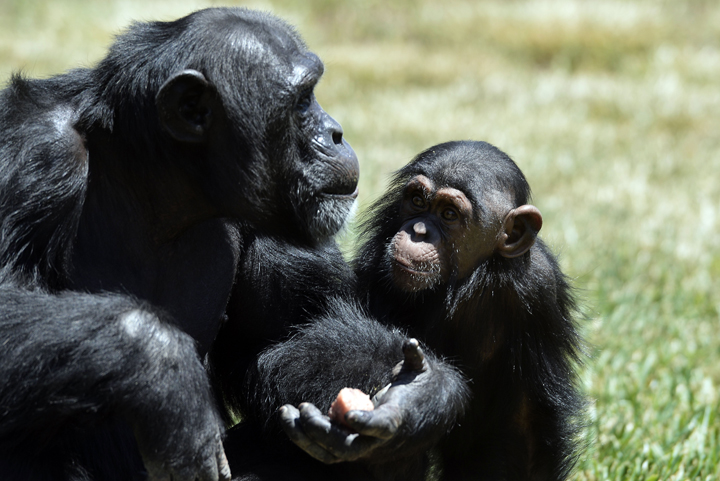Japanese scientists have, for the first time, observed a chimpanzee caring for a severely disabled infant.

Chimpanzees are one of our closest living relatives (they share the distinction with bonobos). While they are very familial, no one has ever documented a case where a disabled infant was born into a family and then cared for — until now. This new discovery is helping researchers better understand how our own social behaviour may have developed during our evolution.
READ MORE: Primatologist Jane Goodall still educating the world about chimpanzees
The female infant was born in Tanzania’s Mahale Mountains National Park with a severe disability similar to Down’s Syndrome. She also had a lump on her stomach, damage to her spine and a sixth finger.
The mother wouldn’t allow any non-relatives to care for her, but took on the responsibility of care herself (the researchers had observed previous instances where she would allow others to care for her young).
Researchers believe that the infant lived for 23 months.
“One characteristic of human society is that people reasonably take care of the disabled and those in vulnerable positions,” researcher Michio Nakamura told the Japan Times. “It’s interesting to observe a chimpanzee looking after a disabled infant in terms of finding out when such sociality occurs, as they are the closest modern species to humans.”
The study was released in the journal Primates.
- Enter at your own risk: New home security camera aims paintballs at intruders
- High benzene levels detected near Ontario First Nation for weeks, residents report sickness
- Beijing orders Apple to pull WhatsApp, Threads from its China app store
- Boston Dynamics unveils ‘creepy’ new fully electric humanoid robot




Comments